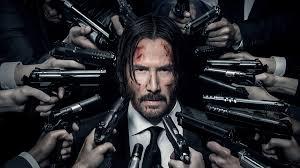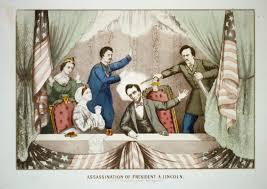





The Breaking of Walter White’s Heroic Facade
In the southern United States, the common saying, “Breaking Bad” is used to mean “To Raise Hell”. This expression perfectly encapsulates Walter White, the protagonist of the hit television series by the same name, Breaking Bad. Walter (Walt) is a 50-year-old overqualified, underachieving high-school teacher who is diagnosed with lung cancer, and feeling that the end is inevitable, resorts to making methamphetamines from scratch to pay for his very expensive treatment, and to provide financial security for his family. While Walt’s story may be tragic, it does not make him a tragic hero. Indeed, as the show develops, his entire character development balances precariously along a cataclysmic descent into evil in a hell that he himself creates. His need for power and control grows, and becomes insatiable. Any honest intentions at the outset for this husband and father to improve his health and create financial security for his family, quickly disappears and is replaced by a monster who only cares about becoming the kingpin of the drug world. He displays tragic traits such as hubris, hamartia and nemesis. However, these traits do not make him a hero; instead, they magnify his duplicity.
Firstly, Walter’s villainous traits are ever present throughout the series. The first and most frequent example of his mutation from a mild-mannered school teacher to a power hungry drug lord is when he is faced with the realization that he can gain more power, through acts of violence. In Season 2 Episode 2, Walter is introduced to Emilio and “Krazy-8”, two drug dealers from his hometown of Albuquerque, New Mexico, who Walter sees as a threat. He ultimately kills them because they stand in the way of him attaining a monopoly over the meth market, and becoming the Kingpin. In subsequent episodes, Walter repeats this vicious pattern to further satisfy his thirst for power. In Season 3 Episode 13, Walter, who at this point has established himself as a powerful drug lord, goes from murdering violent drug dealers to murdering an innocent man, a fellow chemist named Gale. Walter wants Gale dead because he’s become a threat to his reputation as the best meth chemist in the State. To safeguard his position, Walter has Gale killed – a simple man, whose only mistake was being good at his job. The lengths that Walter will go to gain power, and to maintain it, go beyond someone exhibiting hubris, and instead become traits of a power-hungry murderer.
Additionally, Walter uses killing and violence to continue to exert control over the people around him. The most prominent example of this is Jesse. Jesse is Walt’s former student who becomes his partner in the meth business. Throughout the series, Walt treats Jesse less like a partner and more like his inferior, going to any lengths to manipulate Jesse to serve his own needs. Whenever Jesse fails to obey Walter’s wishes, Walt once again resorts to violence and cruelty to get what he wants. For example, in Season 2, Jesse has a committed relationship with fellow ex-drug addict, Jane Margolis. Jesse starts spending most of his time with Jane and they live happily until one day they both start using drugs again, and Jesse’s productivity in the meth business starts to suffer. Walter sees Jane as the cause of Jesse’s inadequate work. In Season 2 Episode 12, Walter checks on Jesse at his apartment and finds both him and Jane in a drug induced slumber. In his efforts to wake Jesse, Walt moves Jane onto her back and she begins to retch and choke on her own vomit. Walt goes to help her, but stops. He considers his options, weighs the pros and cons, and ultimately decides to let her choke and die. It’s not because Jane deserves to die or is a threat to Walt’s life, rather it’s because Walt wants Jesse to be unhindered, to continue to make crystal meth, and continue to make Walter money. Similarly, in Season 4, Walt utilizes his chemistry knowledge to poison a 10-year-old boy named Brock, who is the son of Jesse’s new girlfriend (Andrea). When Jesse finds out, he is furious. Walt’s response? He lies, and manipulates Jesse into believing that Gus Fring (a rival drug lord) is responsible for the poisoning. Further, Walt utilizes Jesse’s anger to help settle his own personal vendetta with Gus. In this example, we once again see Walter the master manipulator harming innocent people – Jesse –and tricking them into doing his bidding. Here, the victim is a 10-year -old child. Only someone as power hungry and cruel as Walt would be able to do such a thing. Thus, Walter’s use of violence to manipulate is as far from heroic and noble as one can get, further illuminating the wicked person he has become.
Finally, some may suggest that Walter White’s criminal activity is noble as he is trying to protect his family’s financial security. On the surface this might seem true; however, upon further inspection it becomes clear that Walter’s motive mutates into a force driven by greed and thirst for power. Walter uses his family as an excuse to continue fueling his power complex. In Season 2 Episode 1 when Walt comes home from a lucrative drug deal, he is so aroused by his own power that he forces himself upon Skyler (his wife). He tries to initiate forceful sex with Skylar who in turn tries multiple times to get away before yelling, “Stop!”. Walter lets the power and prestige of the drug world corrupt him. While his customers get high on drugs, Walter gets high on power, thus transforming him from a loving husband, into a self-serving monster who destroys his family. Moreover, at multiple points throughout the series, Walt feels like his life is out of his control and the feeling of control he gets from his drug life gives him a false sense of that power. In this example, Walt uses this feeling of power against Skylar, in turn harming the people he claims to be protecting, both physically and mentally. Again this same behavior repeated in an iconic scene from Season 4 Episode 6 when he tells Skyler, “A [meth] business big enough that it could be listed on the NASDAQ goes belly up. Disappears! It ceases to exist without me. No, you clearly don’t know who you’re talking to... a guy opens his door and gets shot and you think that of me? No. I am the one who knocks” (“Concerned” 9:00). This line is delivered so intensely that it is evident that Walter is proud of the major impact he has on the drug world. At this point in the show Walter has completed his mutation into a truly evil person. He is addicted to the power he gets from the drug world and will stop at nothing to continue feeding his insatiable thirst. Later in the Episode, Skylar has had enough, and clearly sees the villain her husband has become. She takes their 17-year-old son and one-year-old daughter, and leaves. Then, in the finale, Walter finally recognizes his true motivation and admits, “Skyler, all these things I did… you need to understand why I did them. I did it for me. – I liked it. I was good at it, I was really… I was alive” (“Felina” 31:00). This quote provides a satisfying confirmation that Walter’s actions have been entirely motivated by his need for power and control. Ultimately, there is little supposition that Walter’s motivation to cook meth is to fulfill his own devious desires – not to protect his family.
In conclusion, it becomes clear that Walter’s actions can not be chalked up as someone in a bad situation with a lot of flaws (hamartia). Walter White is nothing more than a cruel and monstrous human who has completely transformed into the devil incarnate. He is willing to kill anyone who stands in his way, and eagerly brings harm upon innocent people in order to manipulate and control others. He uses his family as a way to justify his un-noble actions. In the end we can conclude that there is nothing heroic about Walter White. Throughout the seasons the viewer watches a mild mannered, science teacher lose all morals and become an unrecognizable monster. This character arc of Walter White in Breaking Bad not only serves as an incredibly interesting story, it also is a warning to those who are willing to sacrifice their morals for power, even if they believe it is justified.